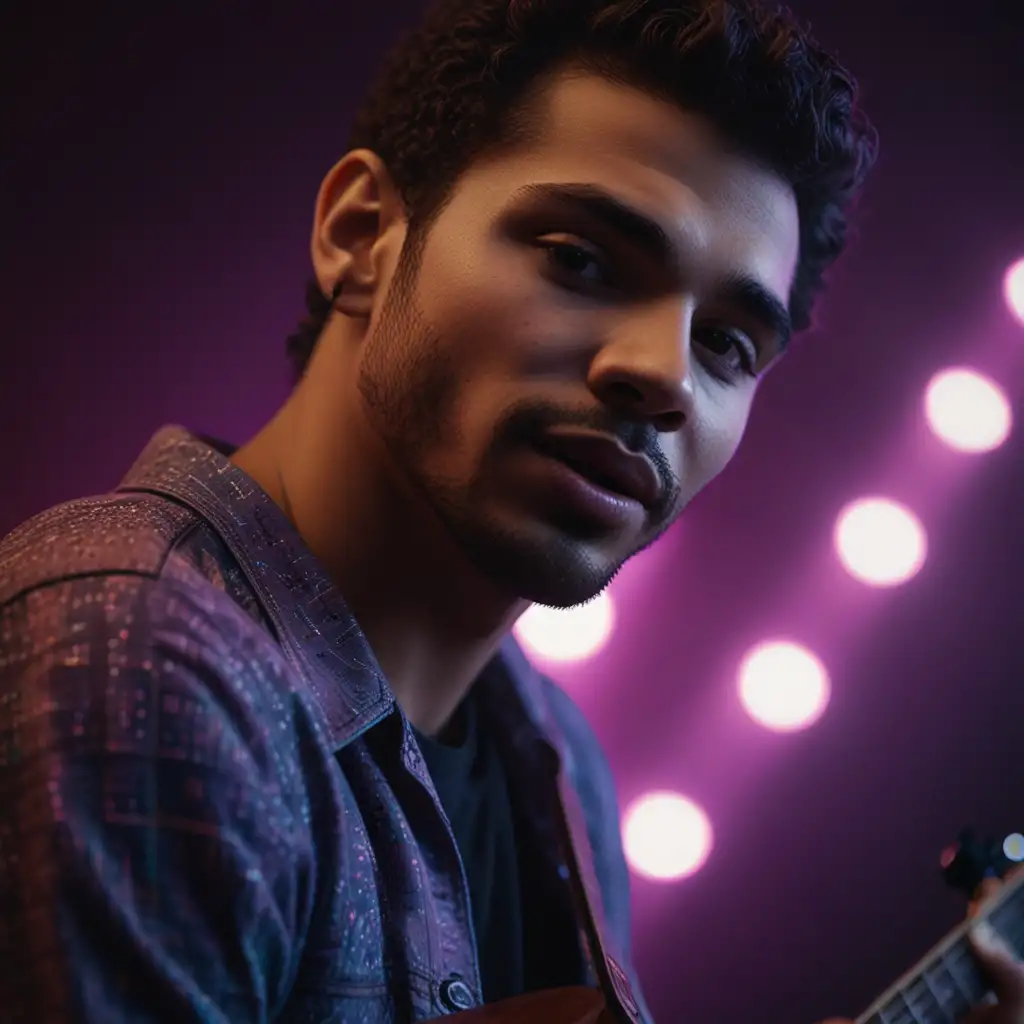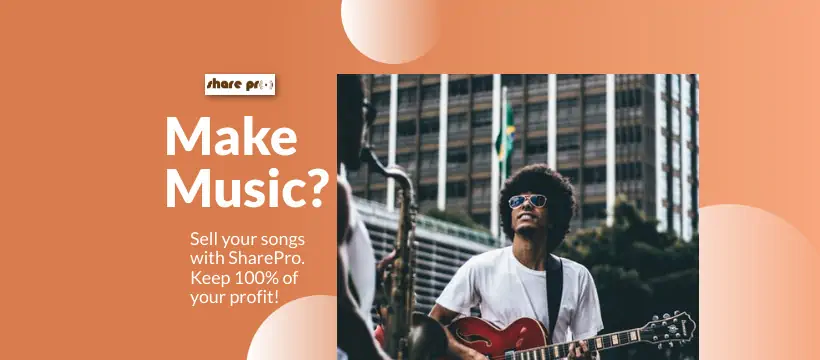How Indie Artists Are Finding Success Without Record Labels
Independent artists thrive by releasing music solo for creative freedom, higher earnings, and direct fan connections.
With digital music platforms and social media booming, more independent artists are ditching record labels and finding success on their terms. The opportunities to reach a wider audience and build a loyal fan base have never been better. Releasing music independently is no longer just a dream; it’s a legitimate option for artists at any level. Sure, a record label can boost your career, but if signing a deal isn’t your thing, there are plenty of ways to make it without one. Going solo gives unsigned artists the freedom to steer their creative direction and maximize their earnings, plus it ensures broader distribution. Thanks to digital distribution and online platforms, you can now make money from your music directly, without needing a record company. And while record labels have their perks, staying independent comes with a ton of benefits.
When you skip the record label, you get to keep full creative control over your music, image, and career choices. You don’t have to deal with outside opinions or anyone telling you how your songs should sound or be promoted. The possibilities are endless when you’re the one calling the shots. Another big plus of going independent is that you keep most of your income and have the freedom to release music whenever you want.
You can play around with dropping singles, EPs, or albums without being tied to a label’s release schedule. Plus, you can connect directly with your fans through social media and email newsletters, keeping that personal touch.
Taking charge of your music career also lets you tap into new markets and reach an even bigger audience than traditional record labels might offer. But if you’re going to skip the record company, you’ve got to get your head in the game and think like a businessperson in the music industry.
Whether you’re an independent artist or with a major label, releasing your music doesn’t have to be as overwhelming as it used to be. Let’s explore the basics of how to drop your music without a record label backing you up.
Set a Clear Goal
Get to know where you’re headed. Ask yourself: What do you want from your music career? Are you aiming for fame, making money from tours and merch, or maybe writing songs for other artists? Or is it just about recording an album for fun? Knowing your goal will steer your decisions—whether it's how you spend your time, where you invest your money, or even who you connect with.
Nail Your Branding
First impressions are everything, and your brand is no exception. Whether it’s your logo, album cover, or merch design, make sure it looks top-notch. A strong, cohesive brand will make people want to support you. And remember, originality is king in the music industry. Instead of mimicking other artists, focus on creating something that’s authentically you. Sure, you can draw inspiration from others, but always put your unique spin on it.

Use Your Social Network
Whether you’re an indie artist or a big star, having the right connections can make all the difference. Social media is the key to opening up your career to the world. There’s no better strategy to propel you into becoming a household name than leveraging the power of content and social media. We're all glued to our phones, scrolling endlessly, so make sure your content resonates with your audience. Having a strong social media presence is non-negotiable in today’s music business.
Networking is also crucial if you want to get your music in front of industry pros. Your network could include people with label connections, other indie artists to swap songs with, or even die-hard fans who’ll grab your album the minute it drops. Advertising on platforms like Instagram, Facebook, YouTube, and TikTok can be super effective for promoting your music and engaging with your audience, especially if you use the right strategies.
Build a Website
Having a website and a strong social media presence is essential. Your website is where fans can learn more about you and buy your music.
Reminder: Keep your online presence fresh and updated—fans love to see what’s new with you.
Distribution
Music distribution involves getting your music to stores and streaming services like Spotify and Apple Music. Many services handle digital distribution for you. Physical distribution, like printing vinyl and CDs, can be important too, especially if you’re offering them as part of a special promotion. Remember, physical distribution comes with costs, so it’s essential to budget accordingly. For many indie artists, focusing on digital distribution might be the most practical approach.
Digital and Physical Radio
Depending on where you live, physical radio is still a viable way to reach new listeners! College radio programs, in particular, are always on the lookout for new music, making them great targets for indie artists. Start building relationships with people in radio—today’s college DJ might be tomorrow’s industry influencer.
Play Live and Hit the Road
There’s nothing like a live show to hook people on your music. The more you perform, the more fans you’ll gain, and the more likely your music is to spread. Tip: After your shows, make time to meet fans—they’re the ones who’ll spread the word about you.
Podcasting
Podcasting is a fantastic way to connect with new audiences. Whether you’re a guest speaker or a host, podcasts offer a great platform to showcase your personality and build deeper relationships with your fanbase. And you don’t even have to talk about music—sometimes the best way to promote yourself is by discussing other interests.
Collaborate with Other Artists
Collaboration is at the heart of the music experience. Working with other artists helps you reach a wider audience, learn new skills, and create something magical. Collaboration can mean anything from a special guest appearance on stage to co-writing a song. Artists who work together grow together.

Connect with Local Fans and Community
Your local fans are the foundation of your music journey. Use geo-targeting on social media and email to reach people in your area who might not know you yet. Be an active member of your community—support other artists, attend local events, and engage with your scene. Community building translates to the digital realm too, so focus on creating a fantastic online community around your content.
Connect with Tastemakers and Bloggers
Tastemakers like bloggers, DJs, and promoters can give your music a significant boost. Building relationships with these influencers can lead to big opportunities.
Pro Tip: Check out platforms like SharePro. It's a marketplace where music creators and industry pros can connect, discover, and network. SharePro makes it easier for indie artists to connect with the big names in music, helping you break through and get noticed by the industry's top tastemakers.
Submitting to Sync Agencies
Sync agencies specialize in getting your music placed in TV shows, movies, and commercials. This can be a powerful way to expose your music to new fans. However, it’s essential to have a solid plan in place so that new listeners can easily find more of your music after they hear it.
Keep in mind: Getting a sync placement is a fantastic way to reach new fans, but it’s just one piece of the puzzle. For this strategy to work, you’ve got to pair it with other tactics, like the ones mentioned earlier. Once new fans hear your song, make sure they have a clear path to dive deeper into your music and become part of your community. Exposure is great, but you need to guide them into your musical world to keep them hooked.
Merchandise
Don’t forget that creating physical goods like vinyl, CDs, and merch takes up storage space, which is an added cost for an indie musician. Plan accordingly!
Run a Mailing List
A mailing list is an essential tool for connecting with your fans. Social media algorithms can limit your reach, but a mailing list lets you reach fans directly in their inbox. Make sure your social media accounts funnel fans into your music ecosystem, with your mailing list at the heart of it.
Here are a few more tips to help you on your way:
Play to Your Strengths. Make a list of what you're good at and what you can do. Use those strengths when planning your promo strategy.
Tell a Story in Everything. Whether it's social media posts, PR stunts, or answering questions on a podcast, weave a story into everything you do. Make it a good one, and make it real—people connect best with stories that come from real-life experiences.
Don't Be Afraid to Ask for Help. No musician has ever made it alone. Success in music always comes from being part of a team.
Final Thoughts
Releasing music on your own can be super rewarding and give you the freedom to do things your way, but it takes some serious planning and commitment. As an unsigned artist, you’ll have full control over your music and a better shot at keeping more of the profits.
That said, you’ll also need to take charge of your promotion and work on building your fan base from the ground up. If you’re thinking about going the DIY route, make sure it’s a good fit for your project by looking at the resources you’ll need to promote it effectively.
In the end, it’s all about weighing the pros and cons to figure out whether teaming up with a label or going solo makes the most sense for you. Take the time to think it through, and choose the path that best aligns with your goals and vision for your music.
Blog Article Tags
independent artists labels freedom earnings digital platforms audienceMore Articles
Where To Find Good Indie Music - If you're a long time fan or first time listener of Indie music, we'll show you the best methods for discovering the music you love.
Building The Right Public Image as an Indie Artist - I'll show you the importance of building your public image with some helpful tips.
The Real Differences Between Music Streaming Platforms - I compare streaming sites, giving the key differences on which is the best.
The Business of Music Archiving - Who Preserves Our Musical Heritage? - I discuss the crucial role & challenges of music archiving to preserve our musical heritage.
Breaking Into The Music Festival Circuit As An Independent Artist - Let's learn some strategies for indie artists targeting music festival performances.


